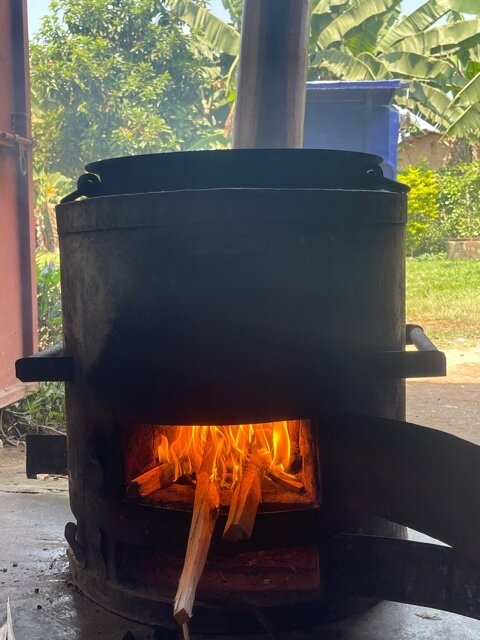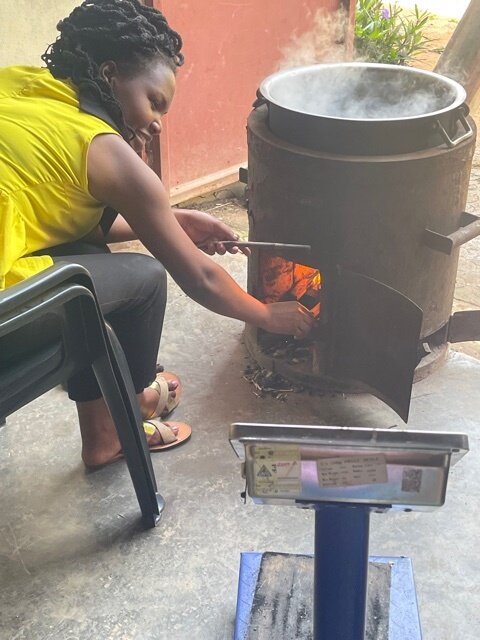There is a traditional dish served at schools in Uganda called “posho”. This is basically maize flour, what Italians know as “polenta”. White in colour. it is boiled in water and served with beans.
In a school with 700 hundred children and above, you can imagine the size of the saucepan to cook the posho. At Wampeewo Ntakke Secondary School, with 2,000 children enrolled, this cooking job is not easy with a saucepan of 500 litres capacity!
Only men can handle such size, and as you can see from the pictures below, the cooking task becomes even harder when the school is using traditional 3-stone fires. The heat, the danger of the flames escaping on all sides, and the strength that is needed when stirring makes the work hard.
Thankfully, the school is moving to using institutional improved cook stoves for all of their meals, so stay tuned as we finalise with the installation in their new kitchen!










































